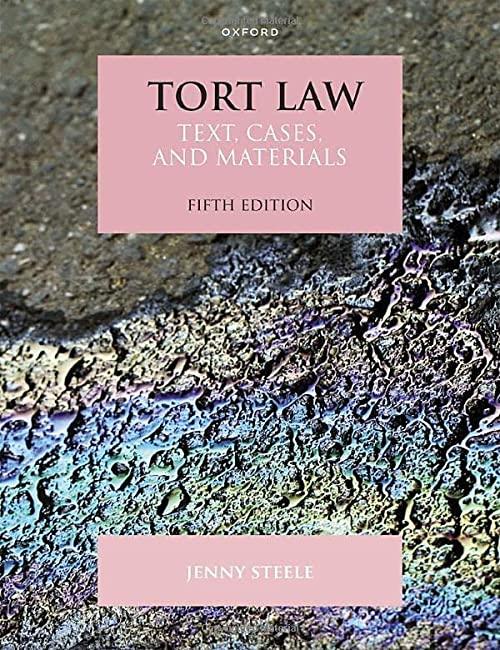Question
Justice Alito writes: The Court's opinion is like a pirate ship. It sails under a textualist flag, but what it really represents is a theory
- Justice Alito writes: "The Court's opinion is like a pirate ship. It sails under a textualist flag, but what it really represents is a theory of statutory interpretation that Justice Scalia excoriatedthe theory that courts should "update" old statutes so that they better reflect the current values of society." Based on this, the majority opinion, and the National Law Journal article, what do you think it means to be a "textualist"?
NOTE 1: Justice Gorsuch never used the word textualism, instead speaking to the "plain meaning" of the law.
NOTE 2: Our book does not discuss "textualism" but instead introduces us to the general topic by contrasting "activists" and "strict constructionists." Justice Scalia once stated: "Textualism should not be confused with so-called strict constructionism, which is a degraded form of textualism that brings the whole philosophy into disrepute. I am not a strict constructionist, and no one ought to be- though better that, I suppose, than a nontextualist. A text should not be construed strictly, and it should not be construed leniently; it should be construed reasonably, to contain all that it fairly means. The difference between textualism and strict constructionism can be seen in [Smith v. United States (1993)]. The statute at issue provided for an increased jail term if, "during and in relation to . . . [a] drug trafficking crime," the defendant "uses . . . a firearm." The defendant in this case had sought to purchase a quantity of cocaine; and what he had offered to give in exchange for the cocaine was an unloaded firearm, which he showed to the drug-seller. The Court held, I regret to say, that the defendant was subject to the increased penalty, because he had "used a firearm during and in relation to a drug trafficking crime." The case was not even close (6-3). I dissented. Now I cannot say whether my colleagues in the majority voted the way they did because they are strict-construction textualists, or because they are not textualists at all. But a proper textualist, which is to say my kind of textualist, would surely have voted with me. The phrase "uses a gun" fairly connoted use of a gun for what guns are normally used for, that is, as a weapon. When you ask someone "Do you use a cane?" you are not inquiring whether he has hung his grandfather's antique cane as a decoration in the hallway.
Step by Step Solution
There are 3 Steps involved in it
Step: 1

Get Instant Access to Expert-Tailored Solutions
See step-by-step solutions with expert insights and AI powered tools for academic success
Step: 2

Step: 3

Ace Your Homework with AI
Get the answers you need in no time with our AI-driven, step-by-step assistance
Get Started


